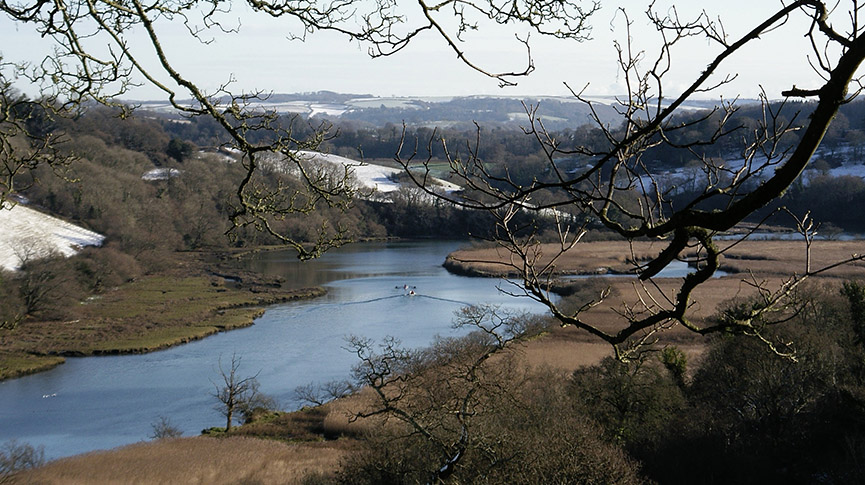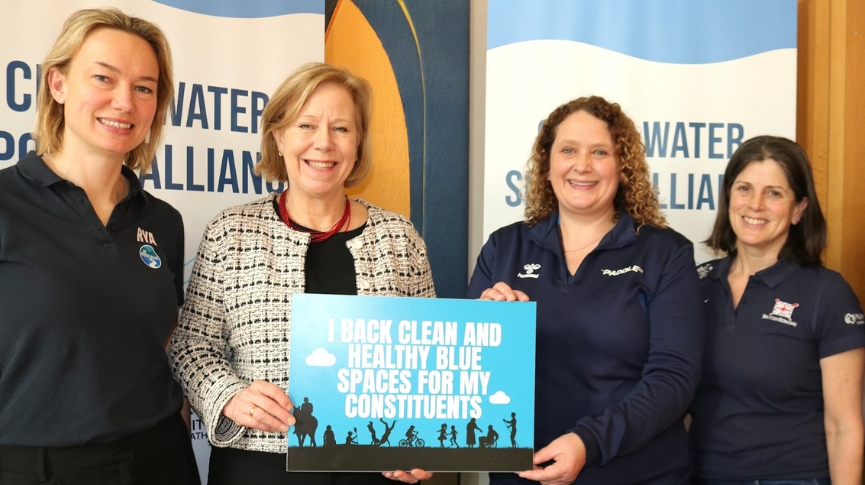Ofwat set to be scrapped in ‘reset’ of water sector
The Government will replace Ofwat with a new unified regulator to tackle record water pollution and strengthen public health protections

The River Dart. Photo: RMalt
Ofwat, the regulator for the water and wastewater sectors in England and Wales, is set to be scrapped, following an independent commission into the industry.
The Government will establish a new, single, powerful regulator to cut water pollution in England’s rivers, and take responsibility for water functions across Ofwat, Environment Agency, Natural England and Drinking Water Inspectorate.
The commission report, led by Sir Jon Cunliffe, has been undertaking the largest review of the sector since privatisation.
His report sets out 88 recommendations as part of a ‘fundamental reset’ of the water sector.
The Environment Secretary, Steve Reed, said a new regulator would “stand firmly on the side of customers, investors and the environment and prevent the abuses of the past.”
The scrapping of Ofwat is one of the recommendations the Government has announced it will be fast tracking.
A full response to the report is due in the Autumn, along with a White Paper which will set out what a new Water Bill could include.
British Rowing and the Clean Water Sports Alliance met with the Commission in March.
The report published today, 21 July, references the evidence submitted by the CWSA, which called for public health reforms to better manage public health risks in water.
The report acknowledges that:
“People want safer water, including for more recreational use, and there is growing public pressure for this vital part of the natural environment, our waterways and coasts, to be preserved and restored.”
Among the recommendations that aim to protect public health are:
- A greater say for public health through strengthened Regional Water Authorities
- A more coherent approach to pre-pipe solutions, preventing pollutants reaching rivers (such as the Government taking swifter action to ban wet wipes)
- A review by the Chief Medical Officers of England and Wales on the incorporation of public health into the legislative framework for water
- Stronger public health protections for water bodies that have a higher recreational or aesthetic value, that goes beyond existing bathing water locations
- A new, long-term, cross-sectoral, and systems-focused National Water Strategy for England and Wales.
The report comes as the Environment Agency said pollution incidents by water companies rose by 60% in a year.
There were 2,801 pollution incidents in England in 2024, the highest on record, compared with 2,174 in 2023.
“Whilst we are delighted that a new regulator will “stand firmly on the side of customers, investors and the environment and prevent the abuses of the past, as per the Environment Secretary Steve Reed,” said Rachel Dulai, British Rowing’s Sustainability Lead.
“With pollution incidents continuing to rise, the urgency of action cannot be expressed strongly enough. It is heartening to see the recommendation for ‘Stronger public health protections for water bodies that have a higher recreational or aesthetic value, that goes beyond existing bathing water locations.’
“The ‘proof of the pudding’ will be how the Government takes forward these recommendations in their response and what is proposed in the White Paper for a new Water Bill due to be published in the Autumn. ”
Last week, Surfers Against Sewage and 40 organisations, including the Clean Water Sports Alliance, wrote to the Prime Minister to demand an urgent end to the sewage scandal through a ‘systemic transformation of the water industry’.
Whether or not the report published today will lead to ‘systemic transformation’ is unclear.
Many believe that the fact that the Commission has not been able to address the issue of who owns our water companies, is a missed opportunity.
Ultimately, it will now be up to the Government to decide how far it is really willing to go with reform, when it publishes its response, and the White Paper later this year.






